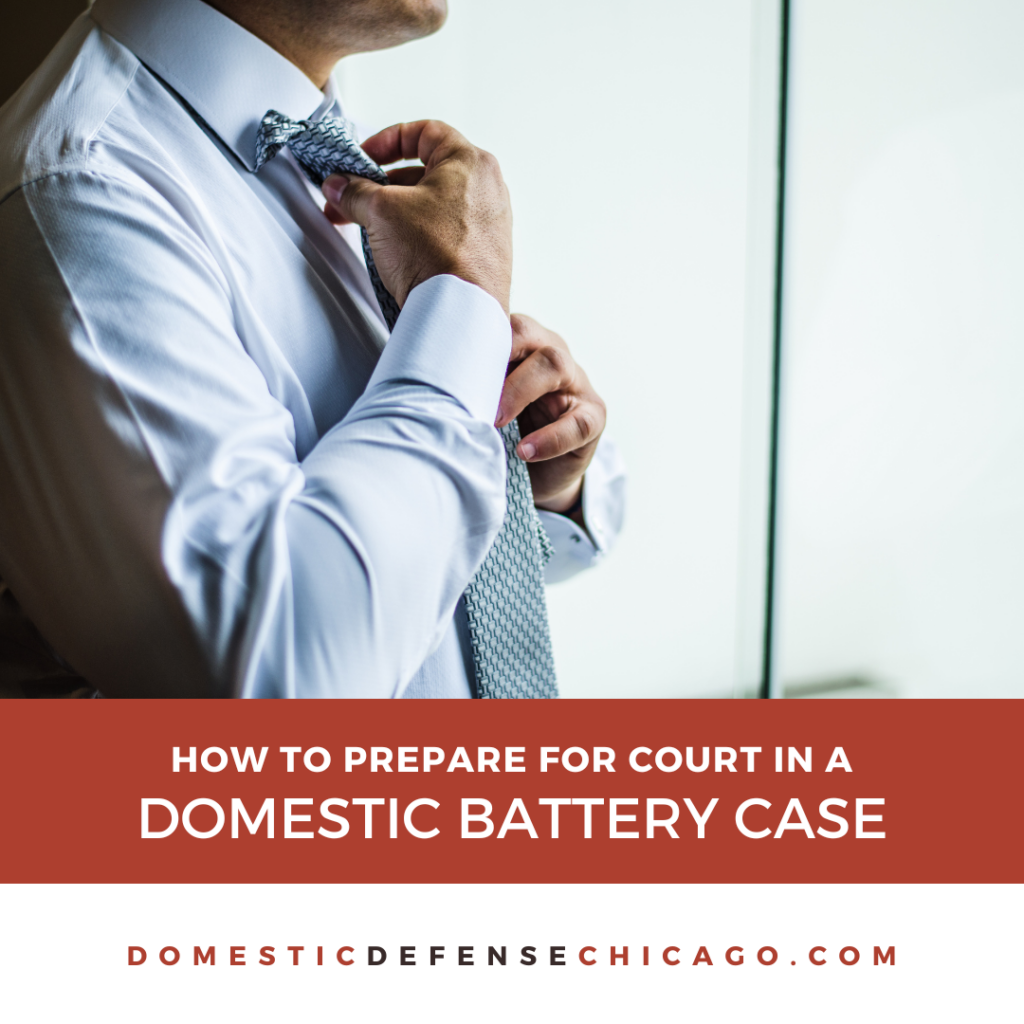Facing a court hearing for a domestic battery charge can be stressful. Preparing well can make a significant difference in how your case is handled and its outcome. Here’s a detailed guide to help you get ready for your court hearing.
How to Prepare for a Court Hearing in a Domestic Battery Case
Preparing for a court hearing in a domestic battery case involves several important steps. This guide explains the following:
- Understanding the charges against you
- Gathering and organizing evidence
- Preparing your testimony and statements
- Dressing appropriately for court
- Arriving early and being respectful
Here’s a closer look at each.
Understanding the Charges Against You
The first step in preparing for your court hearing is to understand the charges against you. Domestic battery charges in Illinois involve causing bodily harm or making physical contact in an insulting or provoking manner with a family or household member. Review the specific details of your case with your lawyer. Understanding the charges will help you know what to expect and how to build a strong defense. Your lawyer will explain the legal terms and the potential consequences of a conviction.
Related: Domestic battery defense information
Gathering and Organizing Evidence
Gathering and organizing evidence is crucial for building a strong defense. Work with your lawyer to collect all relevant evidence, such as:
- Photos and videos: Visual evidence of the incident or injuries can support your version of events.
- Medical records: Documentation of injuries or lack thereof can be crucial in proving your case.
- Witness statements: Statements from people who witnessed the incident can corroborate your story.
- Communication records: Text messages, emails, and call logs can provide context and show your behavior before and after the incident. Organize this evidence in a clear and logical manner. Your lawyer will help you determine what evidence is most relevant and how to present it effectively in court.
Preparing Your Testimony and Statements
Preparing your testimony and statements is a key part of getting ready for your court hearing. Your lawyer will help you prepare by discussing the questions you might be asked and how to answer them truthfully and confidently. Practice your testimony to ensure you are clear and concise. Avoid memorizing your statements verbatim, as this can make you sound rehearsed. Instead, focus on understanding the main points you want to convey. Be honest and stay calm, even if the prosecutor tries to provoke you.
Related: Can you plead not guilty to aggravated domestic battery?
Dressing Appropriately for Court
Dressing appropriately for court is important because it shows respect for the legal process and can influence how the judge and jury perceive you. Wear clean, conservative, and professional clothing. Men should wear a suit or dress pants with a collared shirt and tie. Women should wear a suit, dress, or dress pants with a blouse. Avoid flashy or casual clothing, such as jeans, t-shirts, or sneakers. Your appearance should reflect that you take the proceedings seriously.
Arriving Early and Being Respectful
Arrive at the courthouse early to allow time for security checks and finding the correct courtroom. Being punctual demonstrates your respect for the court and its schedule. Once in the courtroom, be respectful to everyone, including the judge, prosecutor, and court staff. Address the judge as “Your Honor” and speak clearly and politely. Follow courtroom etiquette, such as standing when the judge enters or leaves and not interrupting others while they are speaking. Your behavior in court can impact how your case is perceived.
FAQ About Preparing for a Court Hearing in a Domestic Battery Case
Check out these commonly asked questions about preparing for a court hearing in a domestic battery case. If you don’t see your question here, please call our office and we’ll find you the answers you need.
What Should I Bring to My Court Hearing?
Bring all relevant documents, evidence, and notes that you have prepared with your lawyer. This includes photos, medical records, witness statements, and communication records.
How Should I Behave During the Hearing?
Behave respectfully and calmly. Address the judge as “Your Honor,” listen carefully, and do not interrupt others. Follow your lawyer’s guidance on courtroom etiquette.
Related: Can you modify an order of protection?
Can I Speak Directly to the Judge?
You can speak directly to the judge when it is your turn or when the judge addresses you. Always be respectful and concise. Your lawyer will guide you on when and how to speak.
What If I Don’t Understand a Question?
If you don’t understand a question, ask for clarification. It’s better to seek clarification than to give an incorrect or unclear answer. Stay calm and composed.
How Can a Lawyer Help Me Prepare for My Hearing?
A lawyer can help you by explaining the charges, gathering and organizing evidence, preparing your testimony, advising on appropriate court attire, and guiding you on courtroom behavior. They will represent you and work to get you the best possible outcome.
Do You Need to Talk to an Attorney About Domestic Battery Defense?
If you need to talk to a domestic battery defense attorney in Illinois, we’re here to help. Call us at 847-920-4540 now – we’ll be happy to give you a free consultation and talk to you about your options.







Leave A Comment
You must be logged in to post a comment.